7 Great Trees for Summer Shade and Fall Color
http://decor-ideas.org 09/19/2013 11:30 Decor Ideas
It's that wondrous time of year when late summer starts knocking at early fall's door. Take advantage by planting a tree in your front yard that celebrates the merging of these seasons. Here are some top picks from landscape experts across the U.S.
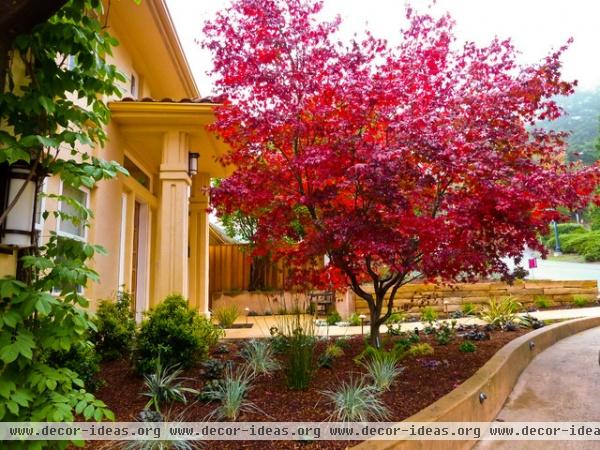
Bloodgood Japanese maple. Sandy Ayers of The Garden Route Company in California loves the ruby-red tones of Acer palmatum ‘Bloodgood’, or Bloodgood Japanese maple.
USDA zones: 5 to 8 (find your zone)
Height: 15 to 25 feet
Color: Deep red in spring and summer, turns scarlet in fall; deciduous
Light requirement: Full sun to partial shade
Water requirement: Moderate to regular
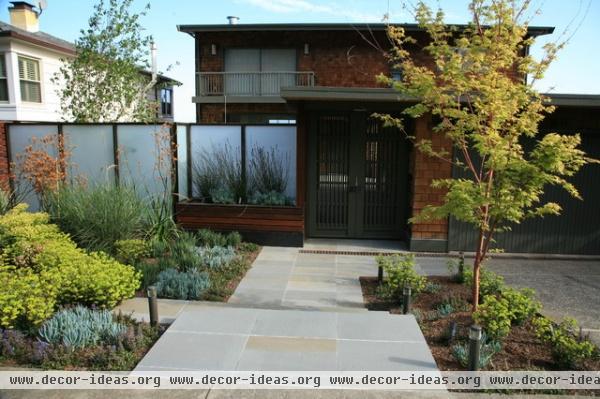
Coral bark Japanese maple. While less dramatic than the Bloodgood, Acer palmatum ‘Sango Kaku’, or coral bark Japanese maple, is one of Ayers' favorites because of the way it imparts shots of yellow into a yard.
USDA zones: 4 to 9
Height: 20 feet
Color: Yellow-green leaves and coral bark in spring and summer; the leaves turn brighter yellow in fall; the bark turns a vibrant coral in winter; deciduous
Light requirement: Full sun to partial shade
Water requirement: Moderate to regular
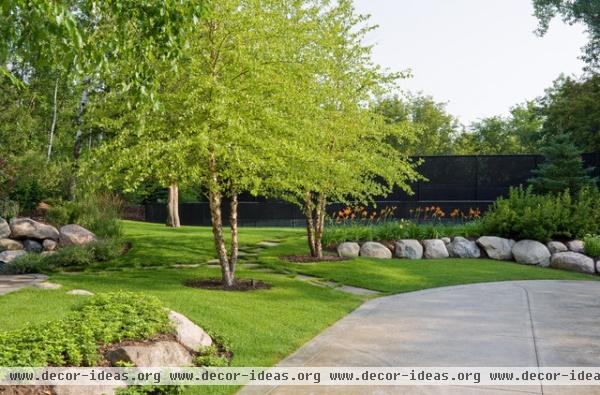
River birch. "River birch is one of my favorites," says Terry Sims of The Garden Artist in Idaho. "During fall the leaves turn yellow, which is a nice contrast to the reds. The exfoliating cinnamon- and cream-colored bark becomes prominent as the tree loses its leaves."
The birches shown here are part of a project designed by Windsor Companies.
USDA zones: 3 to 9
Height: 40 to 70 feet
Color: Green leaves in spring and summer; turns golden in fall; deciduous
Light requirement: Full sun
Water requirement: Will tolerate moderate flooding; drought resistant
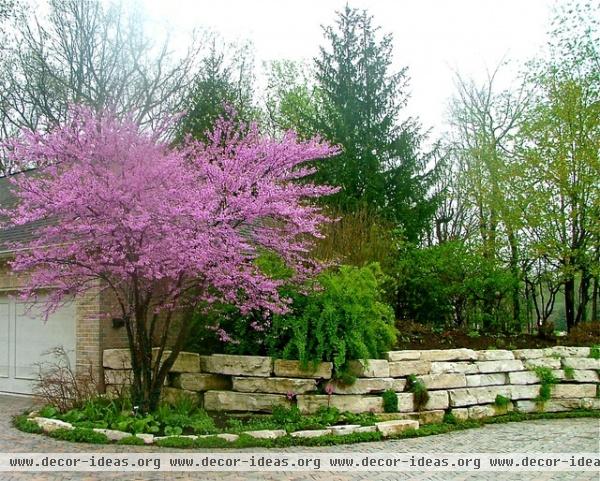
Forest pansy redbud. With four-season interest Cercis canadensis, or forest pansy redbud, provides a great focal point in any yard. "This is especially true in the front yard," notes Sims, "where land mass tends to be smaller."
Redbuds, like the one in this project by The American Gardener, are rated for full sun but, according to Sims, prefer afternoon shade.
USDA zones: 5 to 9
Height: 20 feet
Color: Blooms pink in early spring; turns purple in fall; deciduous
Light requirement: Full sun
Water requirement: Regular
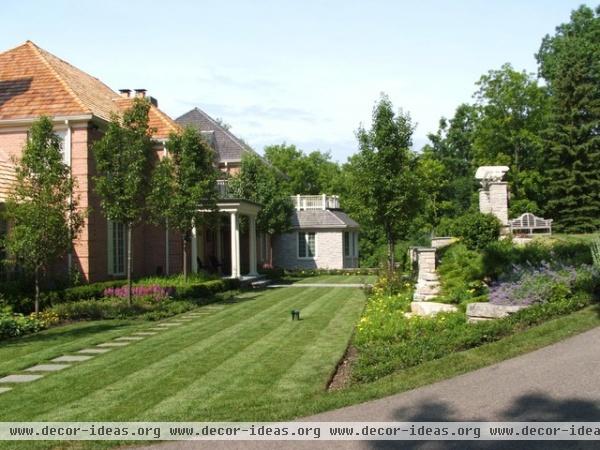
Chanticleer pear. Pyrus calleryana, or chanticleer pear, is considered by many to be a good street tree because of its tendency not to "litter" leaves. It grows in a pyramidal shape, so it's easy to fit in narrow areas. "For the front yard, my favorite kind of allée [line of trees] is with the chanticleer pear," says Sims. "It softens the expanse of a driveway to help minimize hardscape and provides the visitor with direction to the front door."
This allée of chanticleer pear trees is part of a project by Milieu Design.
USDA zones: 5 to 8
Height: 24 to 35 feet
Color: Dark green leaves in summer; turns fiery orange in fall; deciduous
Light requirement: Full sun
Water requirement: Regular
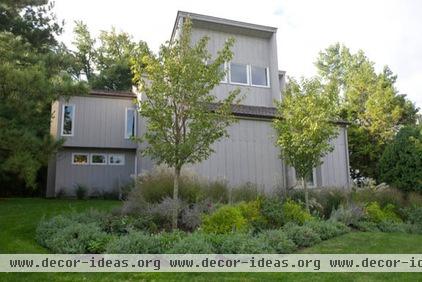
Kwanzan cherry. This double pink flowering tree is a favorite of Robert Welsch's of Westover Landscape Design in New York because it makes a graceful, colorful display along a walkway or street.
USDA zones: 5 to 9
Height: 30 to 40 feet
Color: Green leaves in summer; turns copper in fall; deciduous
Light requirement: Full sun
Water requirement: Regular
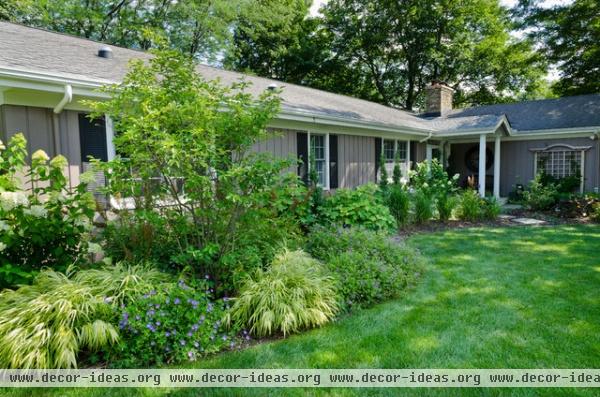
Apple serviceberry. Amelanchier x grandiflora, or apple serviceberry is, as James Drzewiecki of Gingko Leaf Studio in Wisconsin describes, a perfect tree for smaller suburban yards. "It won’t get so large that it casts a ton of shade over the entire lawn, like large shade trees do, but it is large enough to be in scale with most average-sized homes," he says. "Plus, the purple berries make a marvelous jam."
USDA zones: 4 to 9
Height: 20 to 25 feet
Color: Green leaves in summer; turns orange-red in fall; deciduous
Light requirement: Full to partial sun
Water requirement: Regular
More: The Weepers and the Creepers: 10 Intriguing Trees for Your Garden
Related Articles Recommended












